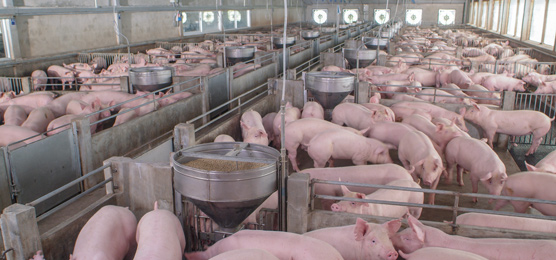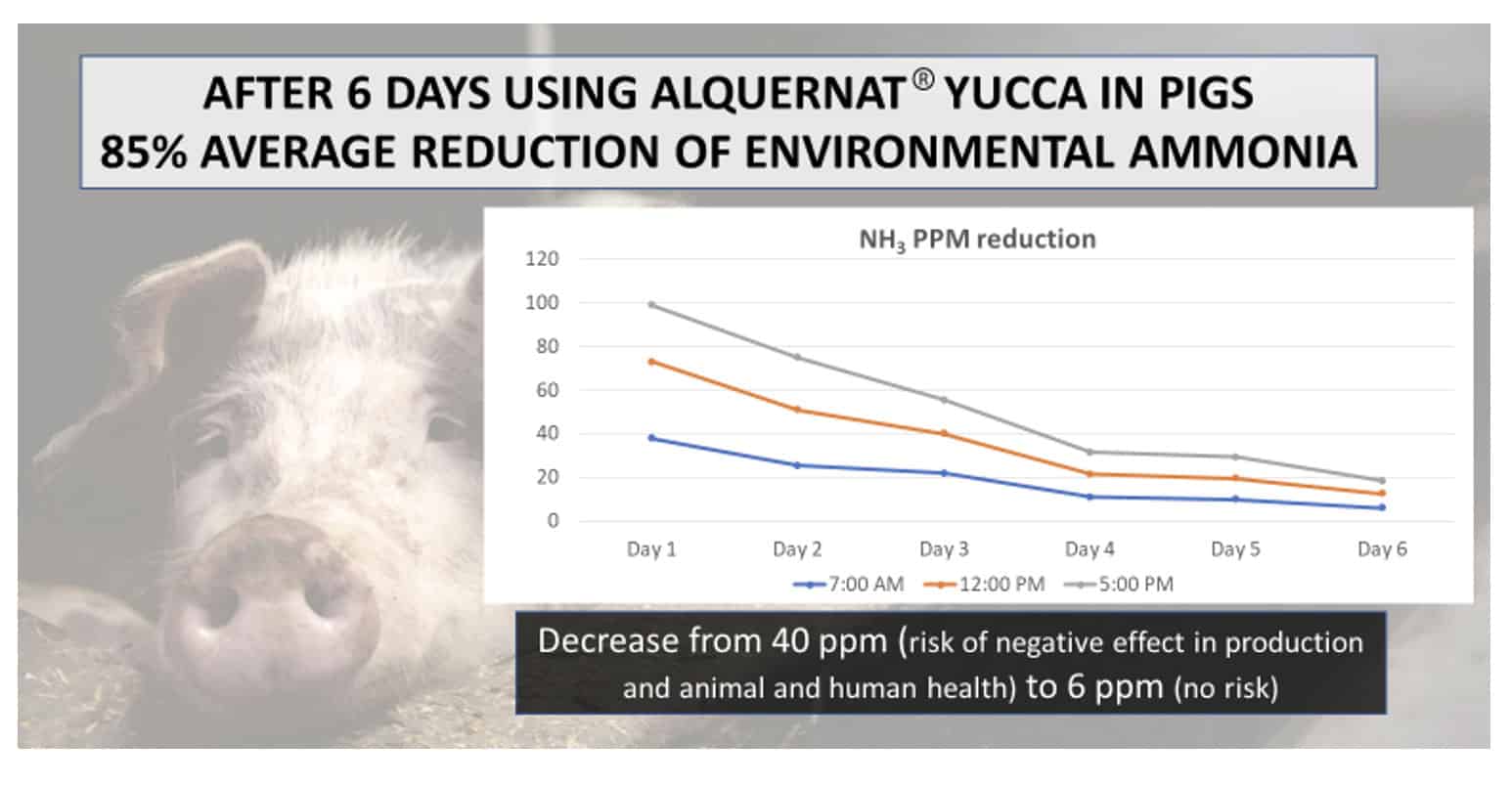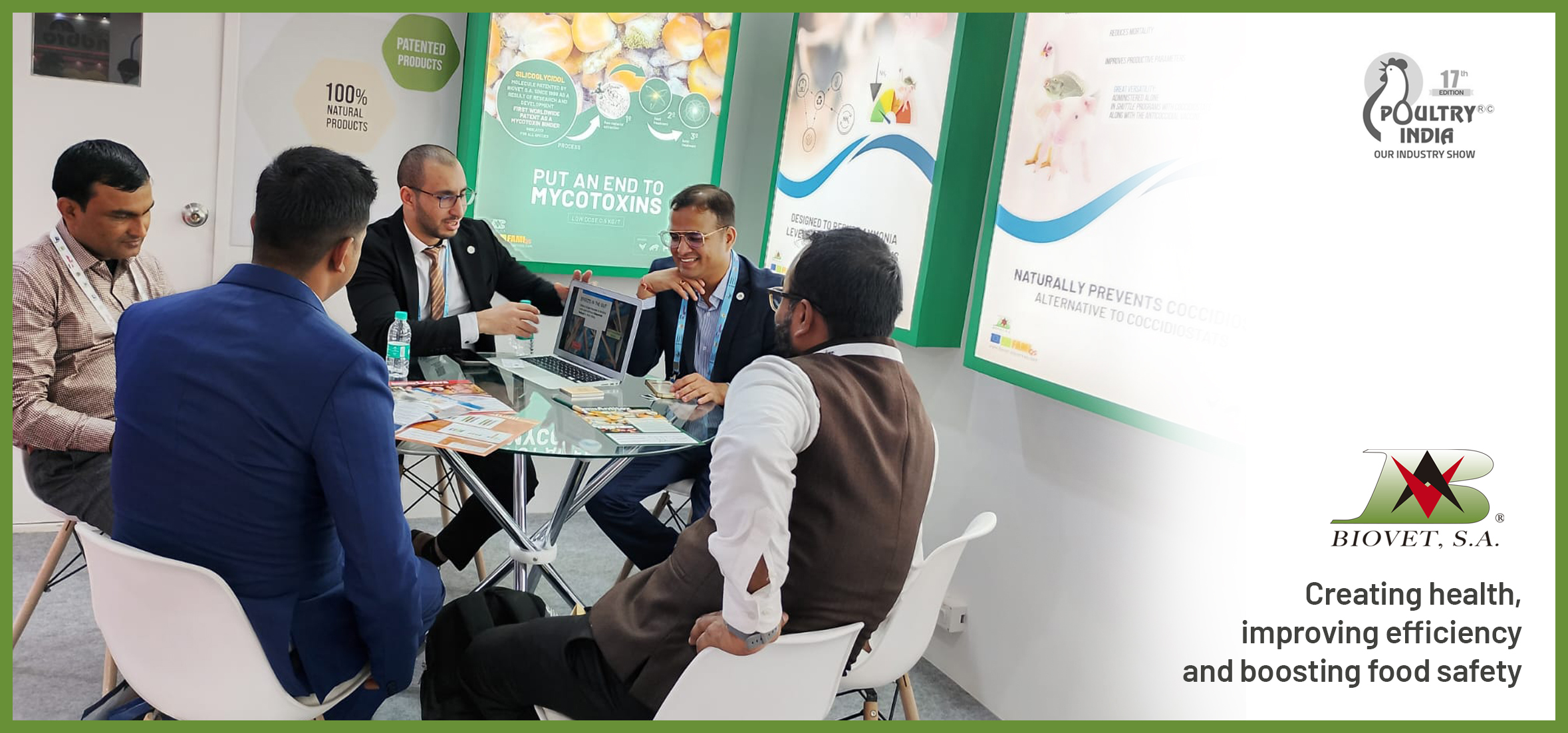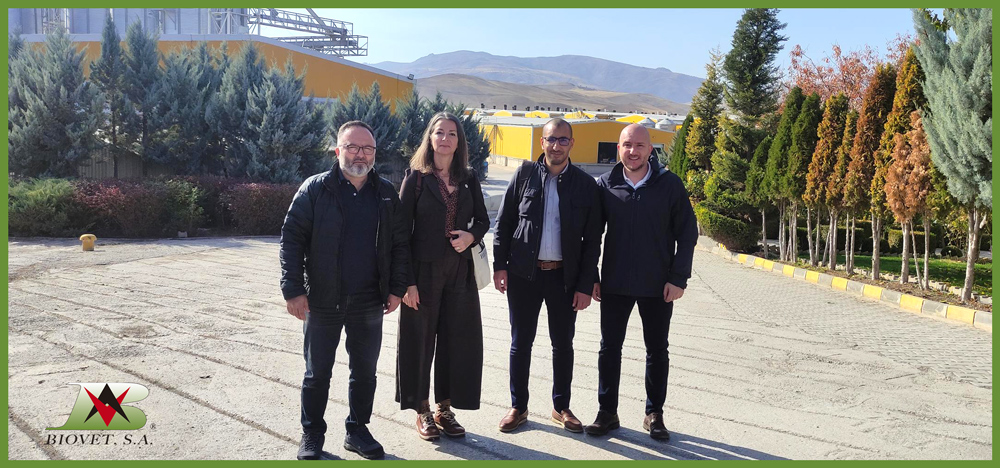Reduction of gases in pig farms: the role of natural additives in emission mitigation
The accumulation of harmful gases in pig farms is a recurring issue that affects animal welfare and the environment. Ventilation systems have become a fundamental tool to minimize gas concentration inside facilities; however, this approach does not address the generation of these compounds at their source nor eliminate their environmental impact. Expelling gases outside simply shifts the problem, contributing to soil acidification, water contamination, and air quality deterioration. It is essential to adopt solutions that reduce the production of these compounds at the source rather than merely dispersing them.

Use of Alquernat Yucca for emission reduction
One of the innovative solutions for gas mitigation in pig farms is the use of Alquernat Yucca, a natural additive formulated with Yucca schidigera in combination with isopropyl-methylphenol. Its mechanism of action is based on the ability of the saponins present in yucca to control ammonia-producing microorganisms in the digestive tract, inhibit urease enzymes, and consequently reduce its volatilization into the environment. Additionally, Alquernat Yucca acts as a modulator of intestinal microbiota, promoting the balance of beneficial bacteria and reducing protein fermentation that generates volatile nitrogenous compounds. This is achieved thanks to the effect of isopropyl-methylphenol, which enhances the antimicrobial activity of saponins in a selective manner, affecting pathogenic and ammonia-producing microorganisms while promoting acidophilic flora.
Studies have shown that the inclusion of Alquernat Yucca in pig diets can reduce ammonia concentration by up to 85%, which not only improves air quality in facilities but also has a positive impact on animal health and productivity. Furthermore, this additive helps reduce unpleasant odours in farms, the well-being of workers and significantly lowering the environmental impact of the operation.

Conclusion
Controlling gaseous emissions in pig farms cannot rely solely on mechanical ventilation. Expelling gases outside the facilities is not a definitive solution, as they continue to affect the environment. The inclusion of nutritional strategies based on natural additives such as Alquernat Yucca is a key tool to reduce gas generation at its source, improve production efficiency, and minimize the environmental impact of livestock activities. Research and the development of innovative solutions will continue to play a fundamental role in the transition toward a more sustainable and competitive pig production.





